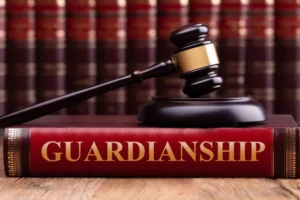The executor of a will is responsible for ensuring that the deceased’s intentions are followed out as well as administering the estate’s final affairs. The executor is authorized to function in this capacity by the local probate court, but this does not necessarily imply that the executor has the last say on all estate decisions. Beneficiaries can disagree over which versions of a will are genuine, who deserves what, and a variety of other issues.
The answer to the question, “Can the executor of a will decide who gets what?” is not encouraging. It usually indicates that a disagreement is brewing, but even if there isn’t one, knowing the executor’s relative abilities can be useful.
Can an Executor Decide Who Gets What?
No, your executor cannot simply decide who gets what. Among other things, the executor is in charge of distributing your assets according to the directions in your will. Only when the individual who made the will, known as the testator, did not provide specific instructions will the executor have the authority to make a choice.
For example, if a family member creates a will and testament that specifically states that the company they own should be run by their firstborn or liquidated with the assets divided amongst their children, but does not specify what should happen to his boat, it may be up to the executor to decide whether to give the boat to one of the family members or sell the boat and divide the assets among the family members.
What Authority Does a Will Executor Have?
Consider an executor to be the intermediary between an estate and its beneficiaries.
They are managers, not authors. The primary role of an executor is to carry out the deceased’s desired wishes regarding their estate.
Executors have a lot of responsibility, but that doesn’t make them powerful. Executorship, if anything, is a burden.
When someone dies, executors must step in to close financial accounts, collect documentation and death certification, and appoint lawyers and financial professionals to help them through the administrative maze of death logistics.
Duties of the Executor
An executor’s primary responsibilities are as follows:
- To validate the Will, apply for probate.
- Interpret the Will and distribute assets, including property and cash, to beneficiaries.
- Direct any estate assets required for minor child care.
- Ensure that all required tax returns are filed.
- The executor owes a fiduciary duty to the estate. They are required by law to act in the best interests of the estate.
When someone dies, their Will usually needs to be validated in probate court. This is an important procedure in which the court grants the executor authorization to carry out the wishes expressed in the Will. So you can rest confident that the executor is liable to the courts before the estate asset distribution process even begins.
But what if the court appoints an executor but the Will is vague or out of date? Can an executor amend the contents of the Will while remaining within the parameters of estate interpretation?
What Can’t an Executor Do?
An executor cannot modify a Will on their own.
However, an executor can decide to petition the courts for a modification of trust if:
- A Will’s instructions are unclear.
- The contents of the Will do not reflect contemporary conditions, which could have been different at the time the Will was created.
For example, a deceased person’s wealth may have been split equally among two children, but a third kid was born after the Will was made.
Even if all beneficiaries of the estate and the executor agree, obtaining a variation of trust is not always simple. When you have to involve the court, it can be a time-consuming and costly process. It would be wonderful if this could be prevented.
How Much Does an Executor Make?
Executors are entitled to an executor fee, which is paid from estate funds that have been approved by the probate court and/or are specified in the will.
Because the executor is working on behalf of the estate, they are legally entitled to an executor fee. Probate laws differ by state, but executor fees might be based on a percentage of the estate’s worth, a fixed fee, or an hourly rate. When the executor fee is calculated as a percentage of the estate’s worth, the rate is frequently tiered, such as 4% of the first $100,000, 3% of the following $100,000, and so on. The fee structure is usually specified by the will, but if the will is silent, state law applies.
Also, keep in mind that if the executor is required to execute “exceptional tasks,” such as overseeing the decedent’s litigation or commercial interests, they are entitled to pay from the estate. Before being reimbursed by the estate for these “exceptional duty” fees, executors may need to obtain court approval. Executors may waive their estate remuneration, particularly if they are a beneficiary and wish to avoid any problems with their familial co-beneficiaries.
Can an Executor Decide Who Gets What Property and Assets?
The executor’s function in the probate process is often to distribute the testator’s property and funds in accordance with the precise terms of the will, as well as to pay the testator’s bills. The executor cannot decide who gets what estate property or assets at will. They do have some discretion to distribute the estate in particular instances, but that power must be explicitly indicated in the will.
Beneficiaries of the will might be abrasive when it comes to claiming their inheritance because they generally do so quickly after the testator dies. The executor, on the other hand, must work hard to ensure that the estate is correctly distributed. An executor can even (though seldom) override a beneficiary if the beneficiary disagrees with the distribution of the estate, which is referred to as appealing the will. That is when the courts step in.
Again, creditors, debtors, and other expenses must be paid before anybody else. This procedure must be completed correctly and cannot be hastened. Executors can be held personally liable for errors, thus they must ensure that the proper bills are paid.
Can a Will’s Executor Have Access to Bank Accounts?
Yes, the executor can decide to transfer funds from a deceased’s bank account to an estate account and use them to pay estate obligations, taxes, and so on in their capacity as the people who handle the deceased’s estates and execute their Wills, but not as their own. After all, the assets belong to the estates they manage, not to them.
What Happens if I Am the Sole Beneficiary and Executor?
Even though the Executor is also a specified beneficiary, they are not permitted to withdraw funds from the estate account. The Executor, like the other beneficiaries, must wait until the estate process is completed and funds are dispersed following court approval of a petition.
Can an Estate Executor Sell the Estate’s Assets?
Yes, executors can sell estate property, although there are some restrictions. First and foremost, it is determined by the state. In some states, executors can sell estate properties with or without the court’s or beneficiaries’ agreement, but they must always notify the latter. The second requirement is that they only sell the properties once they have been evaluated and must not receive less than a specific percentage of the appraised value (90 percent in California).
Cases involving real estate properties, on the other hand, may necessitate clearance from the court and beneficiaries. Always examine the laws of your state and contact your estate counsel.
Can Will’s Executor Take Everything?
It is evident from the preceding information that the executor cannot take all!
An executor of an estate cannot simply take everything because they are the executor by default. They must administer assets in accordance with the terms of the Will, without altering them; this means that they cannot ignore the terms of the Will and seize everything from themselves.
Assume the Executor is also the lone beneficiary under the will. Once all debts and taxes have been paid, all estate assets are handed to the Executor.
What Happens If the Will is Ambiguous?
One of the most important aspects of an executor’s responsibilities is that they have a fiduciary responsibility to the estate. In other words, they must behave according to the terms of the will rather than their own.
The only challenging issue is when the deceased’s wishes, as stated in the Will, are unclear, and the trustee has the authority to interpret these grey regions. If you disagree with the executor’s interpretations, you can always seek legal counsel. You can take the matter to court for clarification.
What if the Executor of an Estate Fails to Disperse the Inheritance?
Can a will’s executor deny beneficiary money? The executor is given broad authority to safeguard and retain assets. Some executors may see this as unlimited power and refuse to disburse recipients’ inheritance.
However, based on the data presented in this post, it is illegal, and you may be forced to disseminate it. You could employ an estate litigation attorney to file a petition in court to compel them to appear. The executor must persuade the judge that their actions were legal. If they are unable to do so, the judge may order the distributions to be made.
Can the Executor of the Estate Be Removed?
Yes, under specific conditions, the Executor of an estate can be removed.
In California, for example, State Probate Code 8502 states that an executor may be removed if:
- They have either squandered, mismanaged, stolen from, deceived the estate, or intend to do so.
- They do not meet the appointment requirements or provide proof of incapacity.
- Neglecting tasks or disregarding the estate for an extended period of time.
- To safeguard the estate or individuals involved.
- Another ground for removal is allowed under state law.
- They are unable to produce a complete accounting of estate assets: they fail to comply with requests for a Notice of Probate Court Application, a Review of the Will, and a Documented Account of the Estate.
Questions to Ask Yourself While Contemplating Legal Action Against a Will Executor
If you have sought legal assistance and examined the estate documents and are still unable to address the issue with the Executor, you have some legislative choices. However, before you file a lawsuit, consider the following questions:
- Have I exhausted all options for recovering what is rightfully mine without resorting to the law?
- Do I have documentation of my interactions with the Executor?
- Can I prove that the Executor is failing to fulfill their duties to the estate?
- Would my inheritance be enough to cover the fees of hiring a lawyer to remove the Executor?
- Do the other beneficiaries feel the same way, and may they join me in my lawsuit?
If an executor’s competence is called into doubt, the court will investigate to see whether they should be replaced and who the ideal Executor would be. Beneficiaries, heirs, spouses, creditors, and possible executors are among those who can attend the hearing. The Executor can be removed if the judge agrees there are grounds for removal.
Conclusion
It is extremely usual for a will executor to also be an heir or beneficiary of the will under consideration. Typically, a family member, such as the deceased’s spouse or children, is appointed as executor and will be a beneficiary of the will and testament. However, there is rarely a conflict of interest because the executor is legally bound by their fiduciary responsibility, regardless of the assets received as an inheritance under the will. Overall, whether a family member or not, the executor is responsible for ensuring that the assets are assessed and distributed in accordance with the will. If there is a disagreement, the Probate Court makes the final decision.



